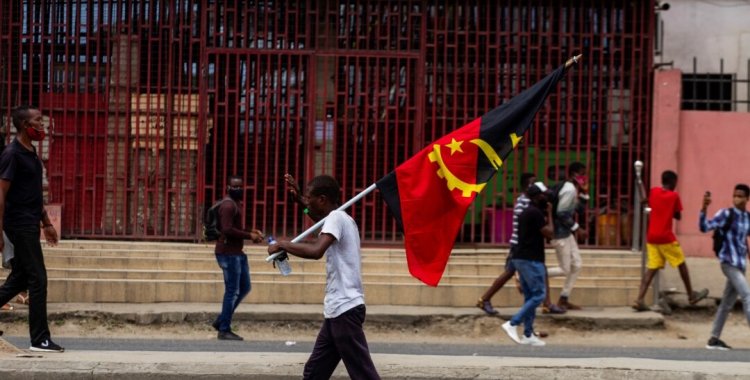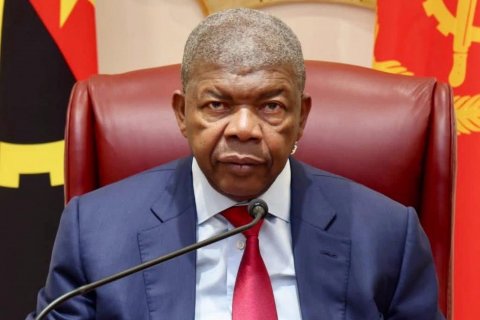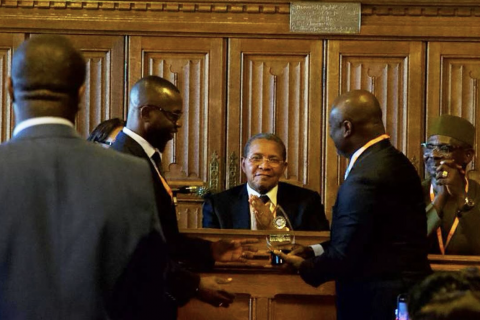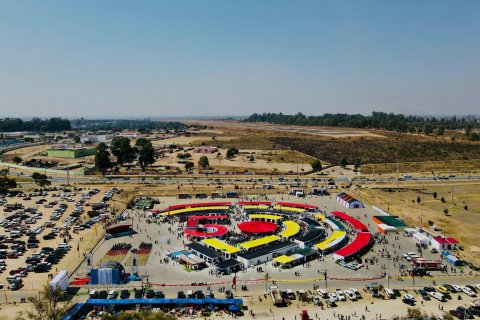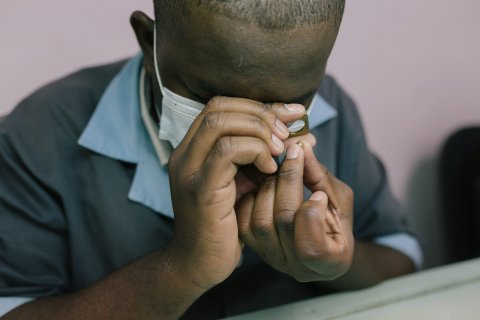The venue chosen for the demonstration, under the slogan "50 Years of Dictatorship is Too Much", was Praça das Nações, in front of the UN Office in Geneva, but, under the famous sculpture of the "broken chair" – which draws attention to the impact of anti-personnel mines and armed conflicts on the civilian population – only about two dozen people gathered, shouting slogans and holding up posters against the MPLA government.
Speaking to Lusa, activist Joana Freitas explained that the objective of the demonstration is to defend human rights, because "in Angola it is a dictatorship, there is no freedom of expression", and when people demonstrate and demand their rights "they are either arrested or killed".
"The Angolan people are suffering. Children have no education, our hospitals have no medicine, healthcare is not good, our mothers are mistreated on the streets because they sell drugs. The situation in Angola is really very, very critical. And since we cannot demonstrate in Angola because of the dictatorship, we do not have freedom of expression, so we who are here in the diaspora took advantage of freedom of expression to come here in front of the United Nations to make our voices heard, against the abuse of human rights in Angola," she declared.
The activist, who, holding a megaphone, shouted slogans such as "We don't want the MPLA in power anymore", also criticized the stance of the international community and major international organizations, such as the United Nations itself, for "collaborating" with the Angolan authorities and supporting "dictators", ignoring "the suffering of the Angolan people".
"For example, a week before our demonstration, [President] João Lourenço traveled here and we asked him what he was doing here. Why do they welcome these dictators without thinking that the people in Angola are suffering and living under a dictatorship? By welcoming the dictators here, they are also collaborating," she lamented.
Portugal was also not spared from criticism, with Joana Freitas considering the Portuguese State to be "the worst" accomplice, given its past as a former colonial power. "It should be the Portuguese who defend us, who should be on the side of the people. But no, the Portuguese State also supports the MPLA's dictatorial system and when you support a dictator you are also directly part of the dictatorship".
The same opinion is shared by another demonstrator, Zé Rocha, who said that "the problem in Angola," as in other African countries, is being a victim of "lobbyists" and "multinationals" in search of raw materials.
"We, the children of Africa, know very well that the conflicts in Africa are not just wars between blacks, no. The West continues to interfere to benefit from raw materials," he denounces.
Both activists who spoke to Lusa admitted that the turnout for Friday's demonstration in Geneva was below expectations, with Joana Freitas attributing the low turnout to the oppression suffered for decades, which repressed freedom of expression and the right to public demonstration, as well as to the lack of trust in international institutions.
"We Angolans have been oppressed for 50 years, so there are many Angolans who no longer have experience in change. And many Angolans are outraged, because they think that Europeans support African dictators, that it is not worth demonstrating and complaining to people who collaborate with dictators, and they become demoralized," she argues.
"Yes, I expected at least a hundred [protesters], but that's how it is, and those who are here are making their voices heard," concluded Zé Rocha, who also picked up the megaphone to appeal for "resistance."

